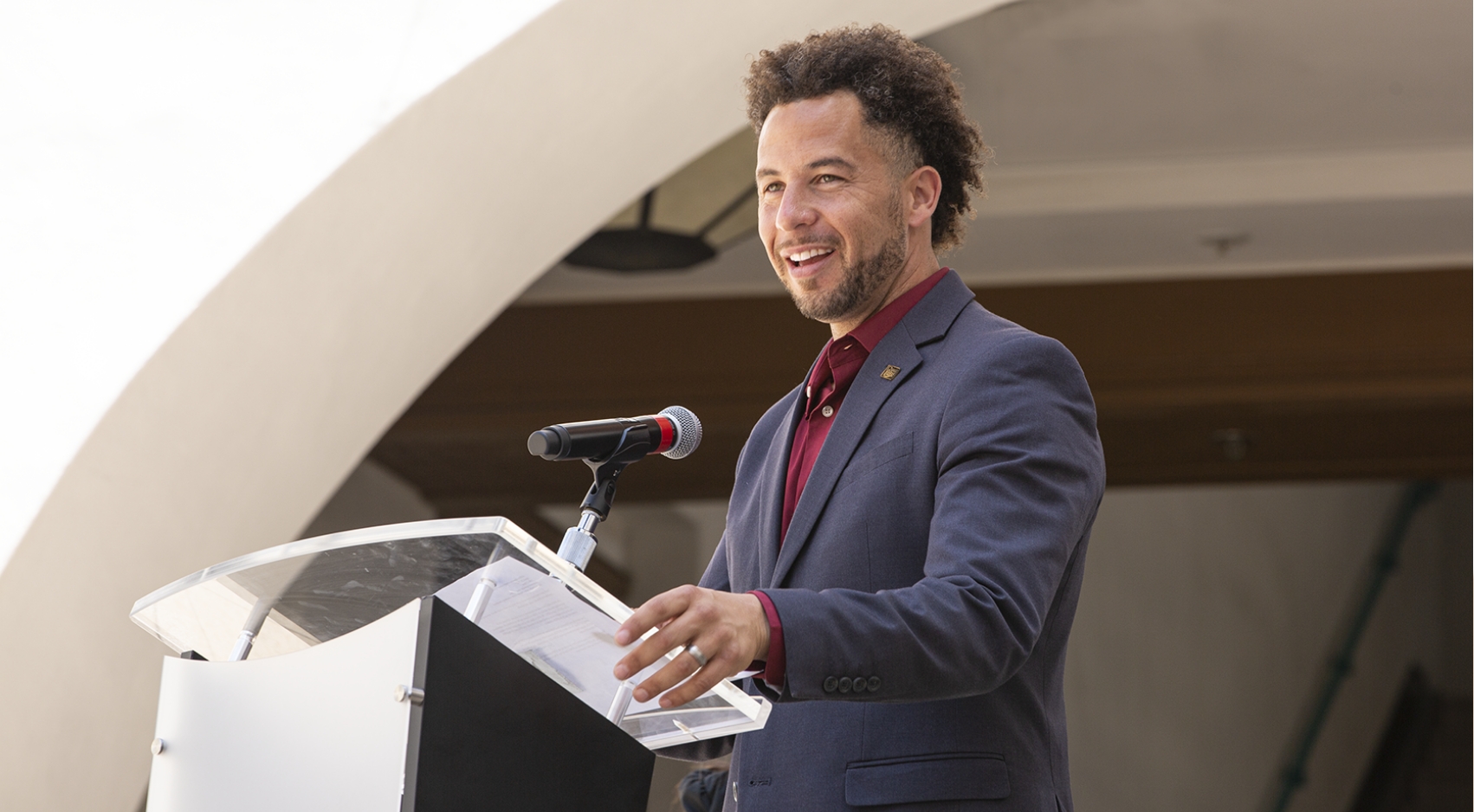SDSU Researchers Inform New Law Protecting Foster Youth in Exclusionary Discipline
Recently-passed AB 740 codifies recommendation from a 2021 report showing a disproportionate rate of suspensions faced by Black foster youth.

Foster youth in California schools will no longer face exclusionary discipline without an advocate in their corner under legislation inspired by San Diego State University education researchers and their findings on inequities faced by Black students.
Signed last month by California Governor Gavin Newsom, Assembly Bill 740 requires that students in foster care be supported by a court-appointed attorney and/or a social worker when faced with exclusionary discipline proceedings. The requirement creates an equivalent structure to the one that exists for non-foster youth, who can have parents or guardians involved in the disciplinary process.
Exclusionary discipline employed by schools includes suspensions, expulsions and limitations from co-curricular activities — even the use of restraints and physical seclusions.
“When I talk to most people and I tell them what the bill does, their reaction is ‘That wasn't already a law?’ Because I think the assumption is that it should have been already,” said J. Luke Wood, Dean’s Distinguished Professor of Education at SDSU, and a former foster child himself.
“It's a systemic issue and this small change can have a big impact.”
Suspending Our Future
The legislation stemmed from a recommendation made in “Suspending our Future: How Inequitable Disciplinary Practices Disenfranchise Black Kids in California's Public Schools,” which was released in 2021 by the Black Minds Matter Coalition (BMMC) — a group of researchers focused on improving the experience of Black children and youth in school.
SDSU-affiliated co-authors of the report included Wood; Frank Harris III, professor and interim associate dean for diversity in the College of Education; Idara Essien, assistant professor in child and family development; and doctoral student Mohamed Qas. The other co-authors were UCLA professor Tyrone Howard, San Diego College of Continuing Education president Tina King, and Valentin Escanuela of the San Diego County Office of Education.
The report found Black students are significantly overrepresented in both the foster youth population and among students exposed to exclusionary discipline. Black foster youth were found to be 523% more likely to be suspended than their peers.
“A lot of young people are in foster care because they’ve experienced significant challenges, in some sort of way,” Wood said. “The last thing we want to do is further that abuse by leaving a child in an unhealthy environment because of educators not doing something so simple as checking with somebody who is a constant in their lives.
“It's about ensuring that our schools provide dignity to our Black and our foster youth.”
Assemblymember Kevin McCarty (D-Sacramento) took on the report’s recommendation and carried the bill, with BMMC as the lead co-sponsor. AB 740 passed the Assembly and State Senate without serious opposition.
"After completing the research and report and seeing what we've seen over the past five years, this change is a relief and we’re very excited about it," Essien said. "I think having as many individuals at the table for this community is extremely important.”
Creating a better experience
For Wood, the change is particularly meaningful. He said he and his brothers were exposed to significant exclusionary discipline as young students because of perceptions made about their race and the stigma associated with being in the foster system.
"This was something that was very dear to me,” he said. “We want to create a situation where children won’t experience these same kinds of challenges.”
The hope is that AB 740 will help disrupt the school-to-prison pipeline, a phenomenon that describes the systemic pushing of students — particularly students of color — out of school and into the juvenile and criminal justice systems. For the Black Minds Matter Coalition, this is only the beginning.
“We're trying to create a better experience for students who are the most disaffected by society and, unfortunately, the most underserved in school,” Wood said. “This is not the last stop on this train. There's a lot more that needs to be done. Our next effort will focus on voluntary and involuntary transfers, which are being used to quietly expel Black students and foster children with little to no due process.”
The bill takes effect Jan. 1, 2023.



